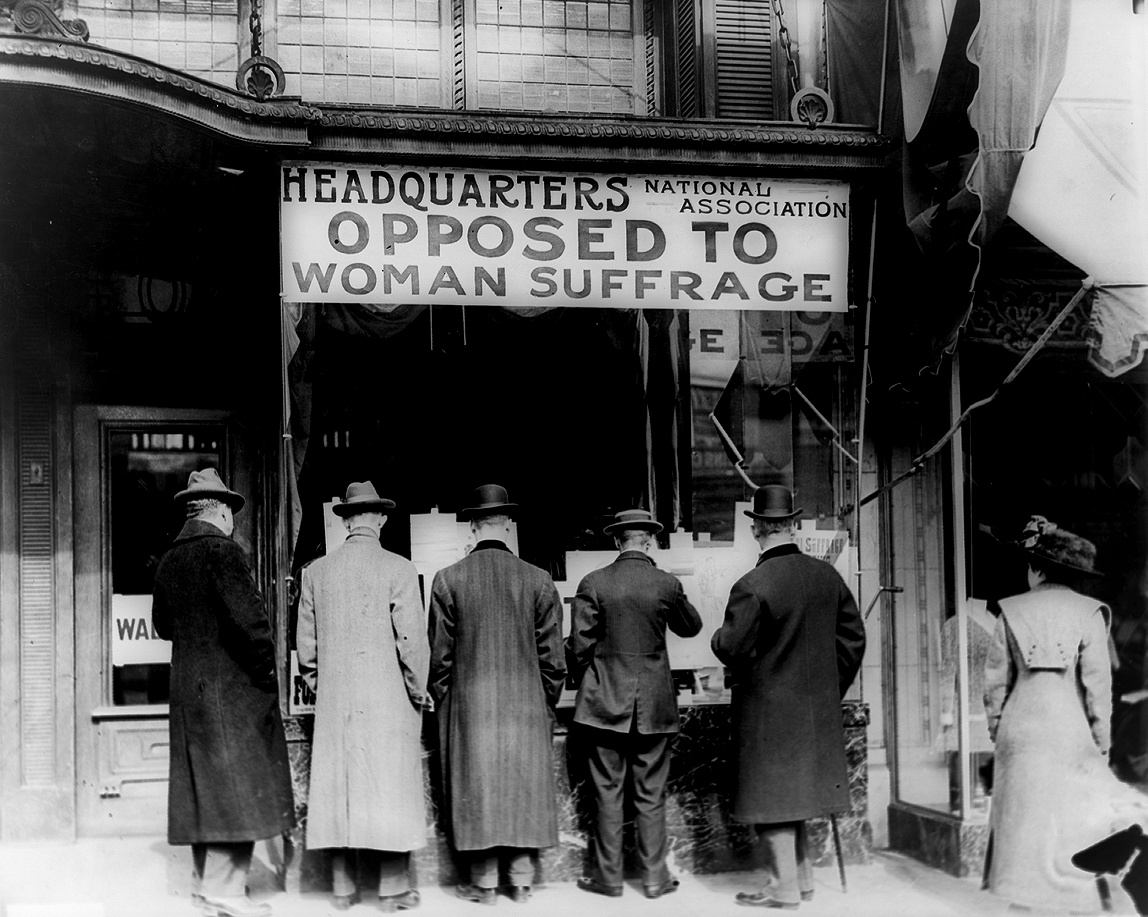Although many Jews supported suffrage like Maud Nathan and Rebecca Hourwitz Reyher, not all of them did. Famed socialist Emma Goldman, for example, believed in women’s equality to men, but felt that extending suffrage to women would be an exercise in futility: “are we to assume that the poison already inherent in politics would be decreased, if women were to enter the political arena?”
Other “antis,” as they were called, came to the movement from more conservative mindsets than Goldman’s; Helen Lauterbach believed that women’s reproductive capabilities made them superior to men in childrearing, and they should therefore take ownership of that arena and allow men to be the decision makers who run the world. A woman identified only as Mrs. Henry Seligman who was active in both the NCJW and the New York State Association Opposed to Woman Suffrage contested suffrage on the grounds that it would bring more working class women into the voting booth, a relatively common anti-suffrage argument.
As involved as Maud Nathan was in the pro-suffrage movement, her sister Annie Nathan Meyer was part of the anti-suffrage movement. A founder of Barnard College, she felt that women would simply repeat men’s follies if they were given the vote and would not be cause for a stronger democracy. She was deeply critical of the women involved in the suffrage movement, openly accusing them of hating men and desiring to be male. Her 1904 article “Woman’s Assumption of Sex Superiority” became a cornerstone text for anti-suffragists, arguing that women’s social advancement has not mirrored their intellectual capabilities, women are too flighty to be trusted with something as weighty as the franchise, voting would bring them too far away from their intended place in the home. Particularly important to her thesis was countering the popular suffrage argument that women are more moral and can bring this superior sense of right and wrong to their political activity.
As involved as Maud Nathan was in the pro-suffrage movement, her sister Annie Nathan Meyer was part of the anti-suffrage movement. A founder of Barnard College, she felt that women would simply repeat men’s follies if they were given the vote and would not be cause for a stronger democracy. She was deeply critical of the women involved in the suffrage movement, openly accusing them of hating men and desiring to be male. Her 1904 article “Woman’s Assumption of Sex Superiority” became a cornerstone text for anti-suffragists, arguing that women’s social advancement has not mirrored their intellectual capabilities, women are too flighty to be trusted with something as weighty as the franchise, voting would bring them too far away from their intended place in the home. Particularly important to her thesis was countering the popular suffrage argument that women are more moral and can bring this superior sense of right and wrong to their political activity.

No comments:
Post a Comment